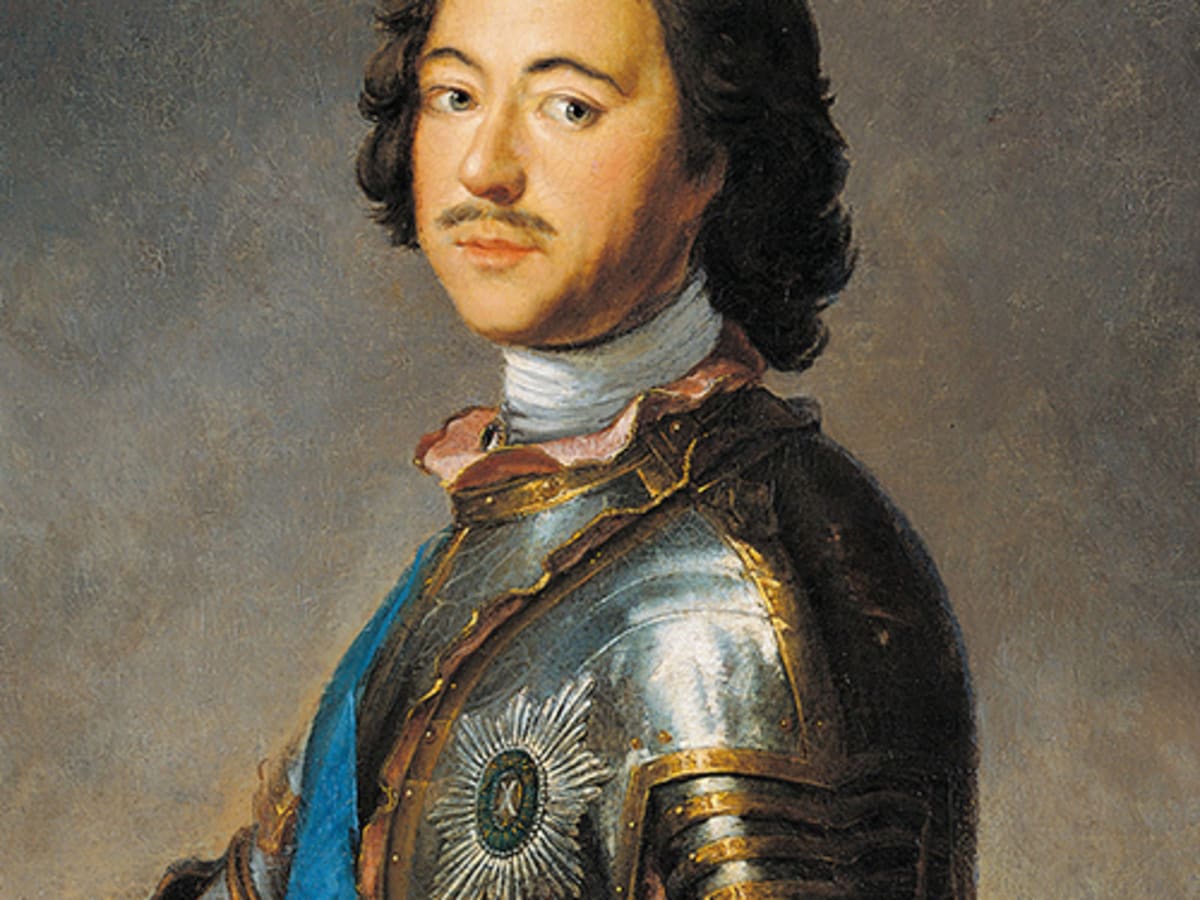Interpretations of Peter the Great vary enormously. Voltaire considered him to be the model of the “enlightened despot.” Nicolai M. Karamzin (1766-1826), who was Russia’s first widely read novelist, attacked the Petrine myth and argued that Peter was subverting traditional Russian values:
At this point Peter appeared. In his childhood, the license of the lords, the impudence of the Streltsy, and the ambition of Sophia had reminded Russia of the unhappy times of boyar troubles. But deep inside of him the youth already had the makings of a great man, and he seized hold of the helm of state with a mighty hand. He strove toward his destination through storms and billows. He reached it— and everything changed!
His goal was not only to bring new greatness to Russia, but also to accomplish the complete assimilation of European customs…. Posterity has praised passionately this immortal sovereign for his personal merits as well as for his glorious achievements. He was magnanimous and perspicacious, he had an unshakable will, vigor, and a virtually inexhaustible supply of energy. He reorganized and increased the army, he achieved a brilliant victory over a skillful and courageous enemy, he conquered Livonia, he founded the fleet, built ports, promulgated many wise laws, improved commerce and mining, established factories, schools, the academy, and, finally, he won for Russia a position of eminence in the political system of Europe. And speaking of his magnificent gifts, shall we forget the gift which is perhaps the most important of all in an autocrat: that of knowing how to use people according to their ability?
Generals, ministers, or legislators are not accidentally born into such and such a reign—they are chosen… . To choose good men one must have insight; only great men have insight into men. Peter’s servants rendered him remarkable assistance on the field of battle, in the Senate, and in the Cabinet. But shall we Russians, keeping in mind our history, agree with ignorant foreigners who claim that Peter was the founder of our political greatness? .. . Shall we forget the princes of Moscow, Ivan I, Ivan III, who may be said to have built a powerful state out of nothing, and—what is of equal importance—to have established in it firm monarchical authority? Peter found the means to achieve greatness—the foundation for it had been laid by the Moscow princes. And, while extolling the glory of this monarch, shall we overlook the pernicious side of his brilliant reign?
Let us not go into his personal vices. But his passion for foreign customs surely exceeded the bounds of reason. Peter was unable to realize that the national spirit constitutes the moral strength of states, which is as indispensable to their stability as is physical might. This national spirit, together with the faith, had saved Russia in the days of the Pretenders. It is nothing else than respect for our national dignity.
By uprooting ancient customs, by exposing them to ridicule, by causing them to appear stupid, by praising and introducing foreign elements, the sovereign of the Russians humbled Russian hearts. Does humiliation predispose a man and a citizen to great deeds? The love of the fatherland is bolstered by those national peculiarities which the cosmopolite considers harmless, and thoughtful statesmen beneficial.

